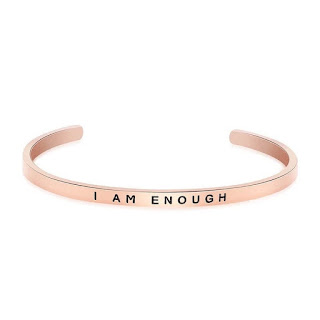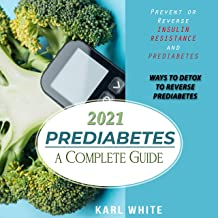Why Does Senior Homelessness Happen in America?
While there are many issues which cause people to fall into homelessness, one of the most common reasons is simply because their income is inadequate to pay rent, and there are not enough affordable apartments available for low income people.
Typically, this happens when an older American loses a job, goes through a divorce, or becomes widowed, and they are suddenly expected to survive on their inadequate retirement or disability income. When someone loses a spouse, the change from having two incomes to only one income can be devastating for many senior citizens, because they may no longer to able to handle their fixed expenses like rent and utilities.
The decline in their financial situation may happen slowly. They use up their savings and gradually fall behind in their rent and other bills. They may try living temporarily with a relative, if they have one who is willing and able to take them in. If that does not work out, they may decide that they will live "temporarily" in their car, while they try to save enough to rent an apartment. Meanwhile, rents continue to rise, affordable housing is scarce, Section 8 vouchers require long waits, and homeless continue to live in their cars or, when they can no longer keep their cars running, they end up on the street. It is more common than you think.
The Number of Homeless Seniors is Expected to Increase
Older Americans make up around one-third of the homeless. According to a caseworker in one of Arizona's largest shelters, "These are not necessarily people who have mental illness or substance abuse problems. They are people being pushed into the streets by rising rents."
As of 2017, the Annual Homeless Assessment from HUD revealed that the percentage of homeless people over the age of 50 who are in emergency shelters or transitional housing rose from 22.9% in 2007 to 33.8% in 2017. More recent numbers are not available because HUD now lumps all adults over age 25 together. This may conceal the problem, but does nothing to solve it. Personally, I have seen far too many senior citizens struggling to survive in shelters.
Researchers believe that the number of seniors who are homeless will TRIPLE from about 40,000 to 106,000 by 2030, when the last of the Baby Boomers reach age 65. This will continue to be a growing crisis unless the problem is addressed with a dramatic increase in affordable senior housing.
Low Income Baby Boomers are Hit the Hardest
Many Baby-Boomers who are in their late 50s or 60s, even those who may still be working, do not have pensions or 401(k) accounts. About half of men and women between ages 55 and 66 do not have any retirement savings at all.
Many of those who end up homeless also have very small Social Security checks, because they had jobs which were low paying or "off the books" during most of their working years. In other cases, they are not old quite old enough for Social Security, but they lost their last job during the pandemic or for other reasons and, because of their age or health, they have not been able to find another one that pays well. For a while they can receive unemployment benefits but, eventually, those run out.
Some who have very low Social Security benefits may qualify for Supplemental Security Income, which was about $841 a month in 2022. That may help them with a few expenses, but in most parts of the country it is not enough for them to afford to rent an apartment.
Life is Especially Difficult for Disabled Seniors
Homeless senior citizens create new issues for social workers. It is more complicated to house people who are older, sicker and may be developing dementia or serious chronic illnesses. Homeless shelters have to make sure they are compliant with the Americans with Disabilities Act. (The homeless shelter where I volunteer installed a ramp to the entrance during the pandemic. Prior to that, the disabled residents had to be carried into the shelter by other homeless people.)
You can learn a little about what they go through by reading the book, "Homeless: A Day in the Life - A Homeless Veteran's Tale." It could give you a deeper understanding of the homeless crisis.
For many disabled seniors, just getting to and from the shelters can be a challenge, since they are often in less desirable parts of cities. The disabled seniors frequently have to navigate rough neighborhoods using wheelchairs, walkers and canes over cracked sidewalks. Sometimes they end up becoming the victims of violence because they do not have a safe place to live.
Because many shelters require the occupants to leave during the day, the elderly must move around the streets of their city, looking for protection from bad weather on buses, trains or in libraries. They are often vulnerable to thieves or, even worse, violent attacks. As the number of elderly homeless people grow, this problem will become increasingly more serious.
The Solution to the Elderly Homeless Crisis
Housing. Our country needs more affordable, supportive housing for low-income seniors, as well as for other homeless people with special needs such as the mentally ill or the addiicted.
The ONLY way to solve a homeless crisis is to provide people with supportive housing. That means the elderly will have access to the essential assistance they need ... social workers, help applying for housing, food, and utilities, plus access to transportation, medical care, and similar essentials.
The provided housing for the elderly does not need to be fancy. It does not need to be spacious. However, it needs to be safe and provide some security. It also does not need to be entirely free. It is not unreasonable to expect the homeless to pay approximately 30% of their income for rent, whether that income is from Social Security, SSI, disability, or a low paying job. For someone on SSI who is living on around $900 a month, this means they could pay rent of approximately $270 a month. This would defray the cost of maintaining the housing, while allowing the homeless person enough money to buy food and pay for their bus fare.
Although younger homeless adults may need different solutions, such as job training, drug rehab, or better mental health treatment, there is only one solution for a senior citizen, especially those in poor health with limited options. That solution is safe, affordable housing for the most vulnerable people in our society.
In addition to supportive housing, there are some cases in which they may need to be housed in a nursing home or memory care facility, which may require that someone, such as a Social Worker, can help them complete the necessary paperwork to show that they qualify for VA care, Medicaid and/or Medicare.
Whatever Americans decide to do to house the poorest of our elderly, it is time to start building the necessary housing and facilities, before it is too late, and tens of thousands more end up on the streets of our cities.
Do you know someone who is recovering from alcoholism or drug addiction? You can find sobriety gifts, and gifts for retirees and others at my Etsy Store, DeborahDianGifts. Check them out here:
To learn more about common medical problems as we age, Medicare, Social Security, financial planning, where to retire and more, use the tabs or pull down menu at the top of the page to find links to hundreds of additional helpful articles.
Disclosure: This blog may contain affiliate links. If you decide to make a purchase from an Amazon ad, I'll make a small commission to support this blog, at no extra cost to you.
You are reading form the blog: http://www.baby-boomer-retirement.com
Photo credit: Pixabay and Amazon book cover









